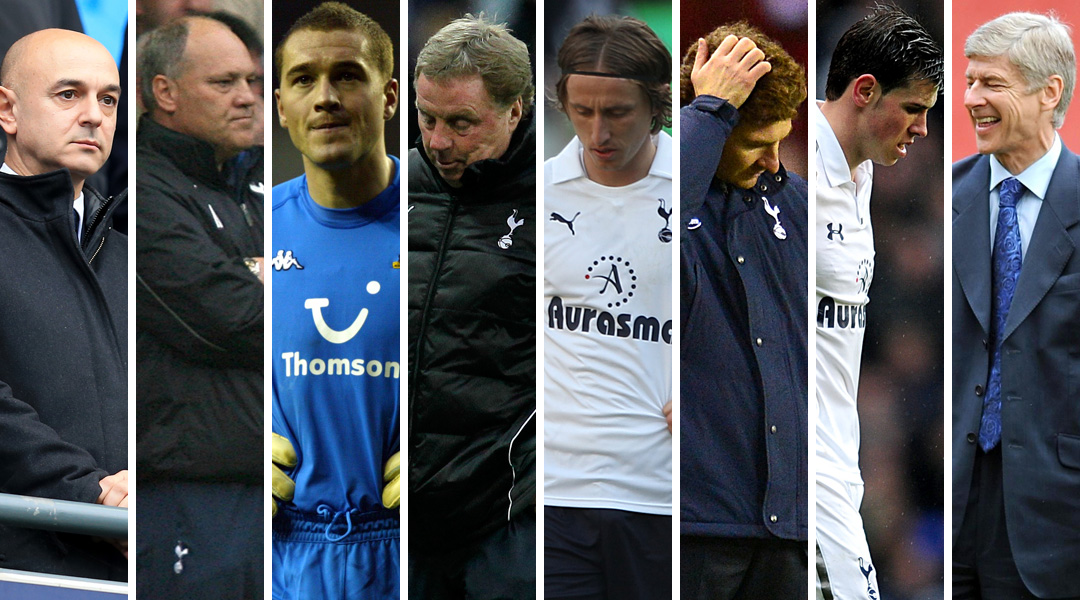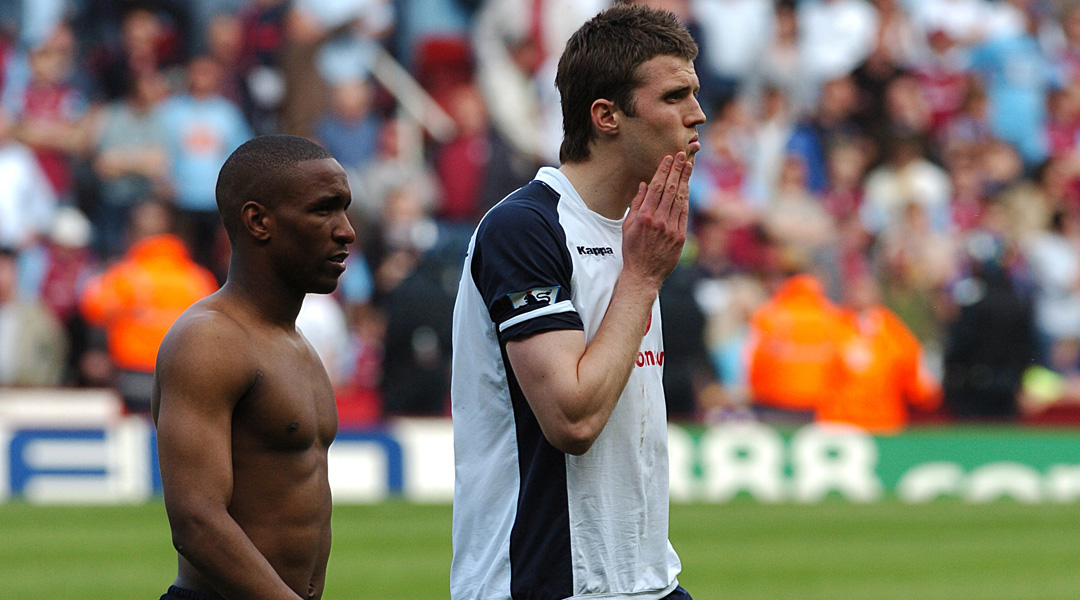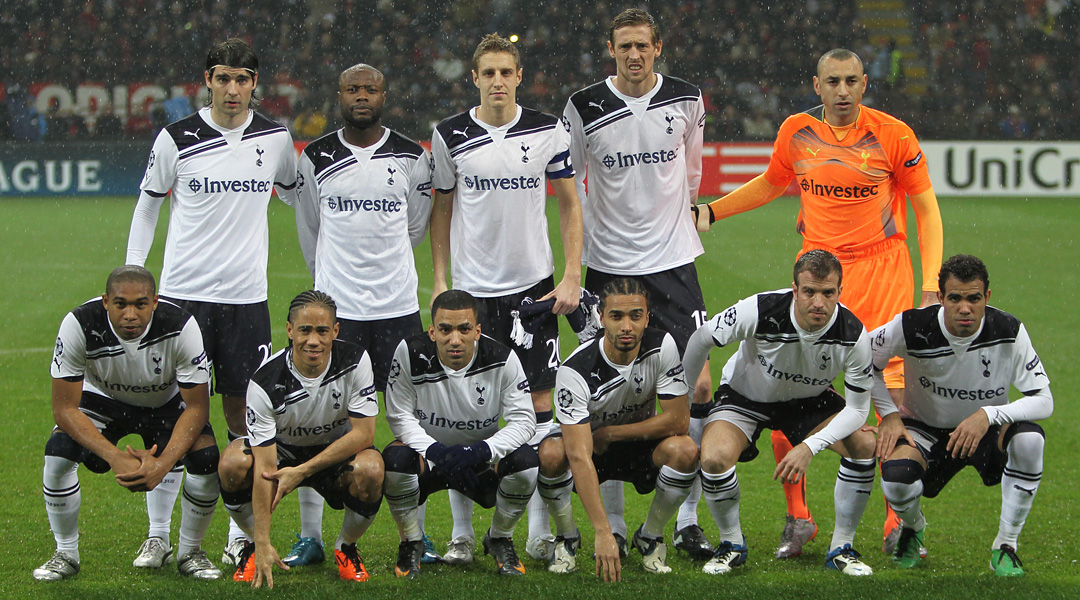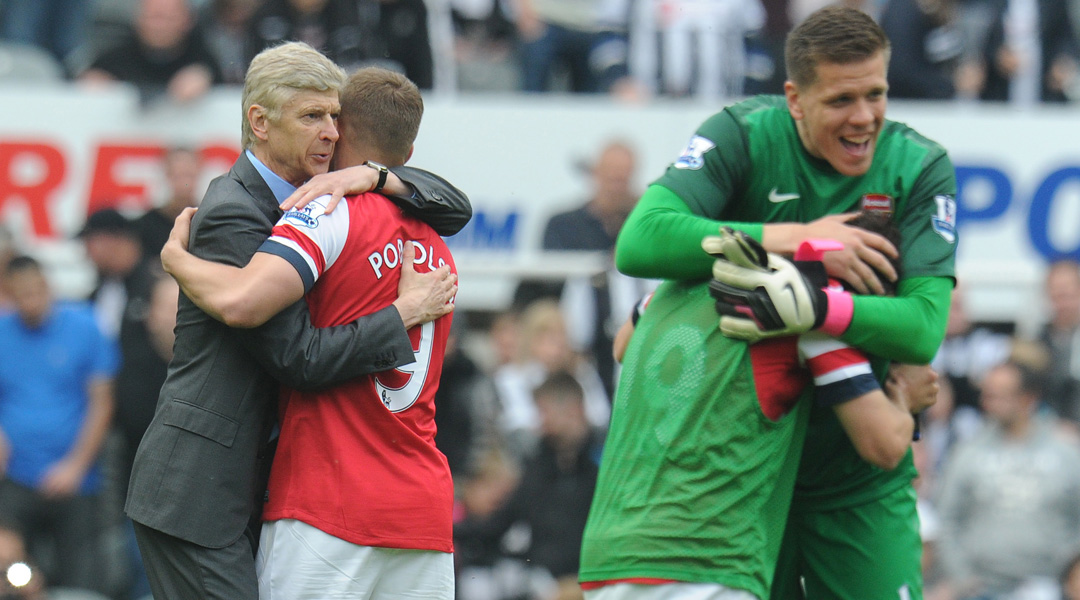Will Tottenham ever actually overtake Arsenal?
FourFourTwo's James Maw examines a decade of closing gaps and touted power-shifts in north London, ahead of Saturday's derby at White Hart Lane...

"Everyone says that their own team is the most frustrating," football writer Iain MacIntosh once tweeted. "But if your team isn’t Arsenal, then you’re wrong."
These days this is a popular maxim - the fact that statement was retweeted nearly 2000 times tells a story. The common perception is that Arsenal fans are put through the wringer; just as their team look like they're on the verge of something incredible, they do something inexplicable.
The League Cup defeat to League Two Bradford City, the 6-0 gubbing at Stamford Bridge, the blown three-goal lead against Anderlecht - there's always something.
So how come, despite a decade of chasing, Tottenham haven't been able to overtake them?
When Arsenal won the FA Cup in 2005 - the last trophy before their infamous nine-year drought - their arch rivals were further away than the length of the Seven Sisters Road. They hadn't finished within seven league places of the Gunners in nine years.
While Arsene Wenger had led his team to three league titles, four FA Cups and seven seasons in the Champions League, Spurs had only a League Cup and one subsequent campaign in the UEFA Cup to show for their toil.
Since then, the gap has closed. Just not entirely. The clubs have both won a single trophy - Arsenal the FA Cup in 2014, Spurs the League Cup in 2008 - but Arsenal have always had the upper hand.
Get FourFourTwo Newsletter
The best features, fun and footballing quizzes, straight to your inbox every week.
Three incarnations of the White Hart Lane outfit have come within a whisker of overthrowing The Gunners as kings of all north London. Three different managers, three different 'philosophies'. Yet they all still failed.
First was Martin Jol's largely young, largely English class of 2005/06. Although often praised for their good football, their primary tactics were long punts from Paul Robinson to Mido, and a teenage Aaron Lennon drawing foul after foul (not to mention booking after booking) from bedazzled full-backs.
In taking Arsenal, champions two years previously, the distance, they exceeded all expectations - not to mention raised them for future campaigns.

Next was Harry Redknapp's gung-ho 2011/12 vintage. With Luka Modric, Rafael van der Vaart and Gareth Bale all key figures, this was a team moulded in the 'Glory Glory' tradition - that, naturally, meant they fell short when it counted. The best Spurs side in at least 25 years briefly looked like title-contenders, before losing their nerve and/or focus, throwing away a two-goal lead over their hated rivals, then an 10-point advantage.
For all the talk of a 'transitional season' at Tottenham, this feels like more of a full reboot...
Most recently came Andre Villas-Boas' Bale-powered side of the following season. They recovered from the loss of Modric, Van der Vaart and skipper Ledley King to again go within a point of a 'power swing'. The football rarely set pulses racing, but Bale was on hand to drag his team through a difficult campaign. Arsenal's near-faultless late-season form meant Tottenham's victory over champions Manchester City and hard-earned draw at Chelsea weren't enough to help them better their neighbours or return to the Champions League.
Whatever Spurs have come up with, Arsenal have found the answer - even if they've sat scratching their heads until the last minute of the exam before scrawling it down on the test paper. Conventional wisdom suggests the men from N17 have blown their big chance. And it's hard to argue otherwise.
Changing of the guard
The managerial churn at Tottenham is well documented (Mauricio Pochettino is the 11th permanent Spurs boss since Wenger arrived in a North London 18-and-a-half years ago) but player turnover at Levy-era Spurs also high. So much so that only four players featured in all three of the aforementioned squads.
Within the space of an 18-month period that spanned from January 2004 to the summer of 2005, Jermain Defoe (West Ham), Michael Dawson (Nottingham Forest), Aaron Lennon (Leeds United) and Tom Huddlestone (Derby County) moved from English football's second tier to North London's second club. Now, with Lennon having this week departed for Everton, all four have left within roughly the same time-span.
For all the talk of a 'transitional season', this feels like more of a full reboot. Not only do none of the players to earn competitive minutes under Jol remain, but neither do any of the 14 who featured in what's surely the high-point of modern Spurs - the Champions League last-16 victory away to AC Milan in 2011.
In fact, there are fewer current Spurs players who scored *for* Spurs on that cup run than *against* them (Twente's Nacer Chadli, Real Madrid's Emmanuel Adebayor and Tottenham's Younes Kaboul, since you ask).

Quite how many of Pochettino's squad will still be playing in N17 come 2019, we can only speculate, but with wet-eared academy graduates Ryan Mason and Harry Kane both signing new contracts that extend beyond that date, it seems Spurs - as they were a decade ago - are once again looking to the longer term future.
That comes as no surprise when you consider that at the start of this season, the gap between Spurs and Arsenal - not to mention the other aspiring title-winners - seemed as big as it had been since the Lilywhites broke in to the top four in 2010. After the frustration and acrimony that became the theme of 2013/14, this was the perfect moment to take a step back and perhaps consider a new approach. There hasn't been quite the same desperate rush for instant gratification this time around. Although several familiar faces have left the club, there hasn't been the usual mad dash around the transfer market. Of the summer's new signings, only Federico Fazio appears to have been brought in with immediate first-team football in mind. The likes of Eric Dier, Ben Davies, Deandre Yedlin and Dele Alli are clearly long-term 'projects'.
So near, yet so far
On the other hand, Arsenal, having earned themselves a little more financial wriggle room, have the clout to compliment their own young talents with undisputed world superstars like Mesut Ozil and Alexis Sanchez. Their depth of attacking options is the envy of nigh-on every club in Europe, especially now Ozil, Danny Welbeck and Theo Walcott have returned to fitness. On that basis alone, you'd have to say Pochettino has done well to keep his team within touching distance - two points - of the Gunners with 24 matches played.
The problem is that Arsenal - the club who put their fans through hell - are actually more than competent when it comes to rolling up their sleeves and sealing a top four spot. This highlights the greatest fallacy about modern day Arsenal - they're actually mentally tough.
Never have they buckled when another team has been breathing down their neck (usually Spurs, last season Everton).
They've always put together a run good enough to secure a Champions Leaue berth - sometimes against the odds. Even in finally ending their nine-year trophy drought (incidentally, a famine the length of which Spurs matched between their last two major honours), The Gunners came from 2-0 down against a Hull City side who were far more resilient last season than this.

Arsenal may have always had enough to ensure Spurs haven't been able to fully turn the tables, but winning the battle for fourth seems to have become so all-consuming that the focus on winning trophies has diminished. Wenger hinted as much when he infamously claimed that fourth place was 'a trophy' last season.
Speaking as Arsenal celebrated pipping Spurs to fourth place in 2013, Gunners legend Thierry Henry grumpily highlighted the issue.
"Putting Tottenham out of the top four, and I really do hope that's what they were celebrating about, that's the only thing you can celebrate," Henry explained. "If you're an Arsenal man through and through that's like winning something. I said it when we did it to them in 2006. It wasn't the fact that we qualified for the Champions League, it was because we kicked them out of it and we went in."
There can be little doubt that Arsenal's players 'get' the North London Derby - certainly more than their lilywhite counterparts
The Frenchman went on to criticise the Gunners for not being more ambitious. He has a point - shouldn't Arsenal be looking forward rather than back? Shouldn't they be aspiring to be more than just the best team in north London?
It seems the prospect of finishing behind their rivals motivates and focuses Arsenal in a way nothing else can. There can be little doubt that Arsenal's players 'get' the North London Derby - certainly more than their lilywhite counterparts.
Be it Wojciech Szczęsny's boorish on-pitch selfie, Theo Walcott's self-satisfied '2-0' gesture, or Jack Wilshere's incessant Twitter 'banter', the Gunners dressing room seems to know exactly how to make Spurs fans seethe, and their own supporters giddy.
That was something Spurs missed last season, when three flat and passionless performances left them without a goal, without a point and without a place in the FA Cup fourth round. Perhaps that's where the zeal and vigor of Mason and Kane can make a difference.
Mind the gap
Tottenham must still clear the psychological hurdle of seeing out the job and finishing a season ahead of their rivals for the first time in 20 years. In the last five years, Spurs have finished a season ahead of every club in the Premier League - except Arsenal.
They have finished a solitary one place behind the Gunners in seven of the last ten seasons. There's generally been little to split the two sides - but the men in red have had the edge every single time. As much as the reinvigorated rivalry appears to be inspiring both clubs, it's arguably doing them more harm than good.
Despite their generally impressive form over the past two months, this match hasn't come at a good time for Spurs. Not only do they have key cup fixtures in the back of their mind - Fiorentina in the Europa League and Chelsea in the League Cup final - but Arsenal are also the in their best form of the season, having conceding just twice in their previous five matches.
Spurs seem to once again be moving in the same direction, and are probably in no worse a position to seize power than at any stage in the last 10 years - sadly for them, Arsenal are once again a few steps ahead.
